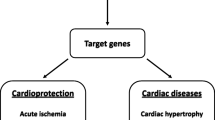Abstract
Compelling evidence now exists that pro-inflammatory cytokines and nitric oxide (NO) are newly identified endogenous regulators of myocardial contractility. The mechanism(s) responsible for the inotropic and chronotropic effects of these novel mediators can be explained on the basis of recently established principles of myocardial excitation contraction coupling (E-C). A novel hypothesis is proposed that cytokines and NO-mediated alterations in E-C coupling contribute to the reversible myocardial depression and β-adrenergic desensitization observed in a diverse group of clinical conditions that activate host inflammatory responses, including congestive heart failure. The results of in vitro studies indicate that cytokines and NO have both immediate, short-term, as well as long-term effects on cardiac performance. Basic studies into these cytokine signaling pathways in cardiac myocytes have the potential to provide important new insights relevant to the design of new management strategies for the treatment of congestive heart failure patients.
Similar content being viewed by others
Author information
Authors and Affiliations
Rights and permissions
About this article
Cite this article
Haque, R., Kan, H. & Finkel, M. Effects of cytokines and nitric oxide on myocardial E-C coupling. Basic Res Cardiol 93 (Suppl 1), s086–s094 (1998). https://doi.org/10.1007/s003950050227
Issue Date:
DOI: https://doi.org/10.1007/s003950050227




